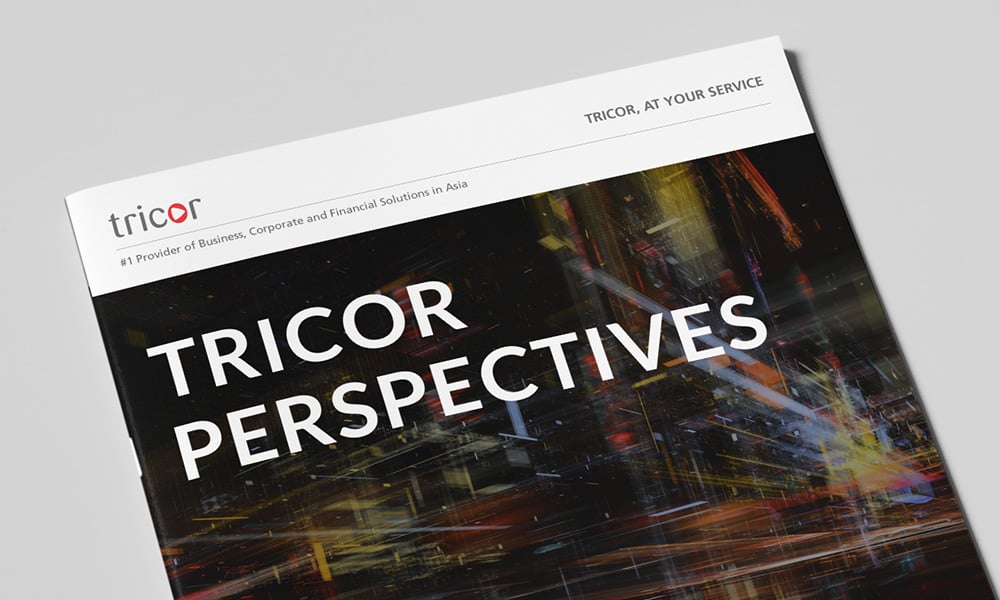In a world driven by technology, constant innovation is the foundation to continued success. We are delighted to speak with Lukas Petrikas, Head of Innovation and Data Lab, HKEX, on how HKEX is leveraging new technologies to drive innovation in capital markets, both internally as well as for Exchange Participants.

Lucas Petrikas - Head of Innovation and Data Lab, HKEX
1. Please briefly introduce yourself
I joined HKEX in 2012. These last few years have been a time of many changes for the Hong Kong capital markets. I worked on the acquisition of the London Metal Exchange, and later on Stock Connect, Bond Connect and the listing reforms that opened up our markets to more biotech and new economy companies. Since 2018, I have been helping to bring new technologies and FinTech partnerships to HKEX in my capacity as the Head of Innovation and Data Lab (or formerly Innovation Lab).
2. Please tell us more about the HKEX Innovation and Data Lab
The HKEX Innovation and Data Lab focuses on incubating and accelerating new ways of delivering business growth, usually using technology to achieve something that used to be more difficult before. It might be speeding up or reconfiguring a business operation, discovering something new about the activity taking place in our markets, or helping to launch a new business line. We therefore work across and with all HKEX business departments and IT, as well as external partners.
3. If possible, please elaborate more about the technologies HKEX has adopted? Have there been any challenges in using these new technologies?
We are big believers in the power of AI to help HKEX in its operations, and were early adopters in this area. Our first full-scale production system went live in 2018, and we still use it to track the hundreds of corporate actions that Hong Kong-listed companies announce every day. There are almost 30 types of corporate action in our market, and we use this software to fact-check each of them before broadcasting the details to our participants. At first, the AI ran in parallel with the time-tested ‘manual review’ that we had been doing for many years, but only a couple of months later we found that the latter could be largely phased out. This was a good example of proactive change management, without which even the best new technology can face challenges inside big organisations.
4. There has been a lot of recent changes and updates at HKEX. How will the Lab support all these exciting initiatives?
The Innovation and Data Lab gets involved when there is genuine value to having a fresh perspective on a particular challenge. We are not embedded in running day-to-day operations, and this allows us to think freely and experiment with different ideas. For example, we might work with a start-up to build a bespoke piece of software that solves a very particular need that might only exist in HKEX, say, related to the regulation of Hong Kong-listed companies. No other company might have those exact same duties, so finding something off-the-shelf or running a tender might be impractical. That’s why we have this Lab. Some of our recent work includes robotic automation[1], issuer regulation[2], market supervision[3] and IPO reform[4].
5. Earlier this year, you had an article on AI + RegTech. Could you please share your insights on what impact AI will have on corporate governance?
AI may be useful in compliance evaluation, surveillance and risk detection. It can help measure and track corporate governance habits of companies over time. In the end, though, AI is not yet a substitute for ensuring sound corporate governance practices, which have a more human dependency.
6. Do you expect AI to have any significant impact or influence on regulatory activities in the future?
Yes. AI can augment regulatory capabilities when it comes to collecting, filtering and interpreting data. This is a powerful regulatory tool, as it allows more comprehensive analysis of companies’ disclosures and behaviours, as well as detection of patterns that are then retained for further improvement of the algorithm. If you went to any regulator in the world and asked them what they would do if they had 100 extra staff, chances are they will tell you about some ambitious ideas or targets that are beyond their capabilities today. That’s the kind of ambition that AI can increasingly turn into reality, and that’s where I see the key difference between AI and more simple applications of automation.
7. How do you see innovation in a regulated world? Is it hard to have disruptive innovation in this unique space?
Regulators might be some of the biggest users and drivers of innovation, as they have such a dynamic job that requires always adapting to shifting market conditions and new information. It does not have to be disruptive to have a positive impact. Constructive might be a better description. I wouldn’t say it’s hard, but it takes a bit of an open mind to trust technology to help with such an important set of tasks. It’s encouraging to see more and more regulators adopt AI and other technologies such as knowledge graphs to help with data-driven decision making. For HKEX, this has been a positive experience so far.
8. How should Hong Kong integrate into the financial development of the GBA? How can technology and innovation help Listed Companies enrich their ESG strategy?
On 27 August, HKEX signed a MOU with the Guangzhou Futures Exchange for strategic cooperation in promoting sustainability and facilitating the development of the Guangdong-Hong Kong-Macao Greater Bay Area. As a champion of sustainable finance within the Greater Bay Area, HKEX now looks forward to extending our promotion of green and low-carbon markets through the commercialisation and international development of the GFEX in the region. The SFC and HKEX are leading a feasibility study of developing Hong Kong as a regional carbon trading centre to strengthen collaboration in the GBA including exploring opportunities presented by both the compliance carbon market and the voluntary carbon market in China and overseas.
9. FINI is expected to have a big impact on the IPO process. Could you please share more?
We have this once-in-a-generation opportunity to change how IPOs come to market in Hong Kong and modernise the interactions among different participants. Rather than make small, incremental changes such as eliminating paper forms, we need to ask why we have those forms in the first place, and what purpose they serve. Consulting the market on FINI has allowed us to gather a vast collection of input and suggestions from various stakeholders about what works well in the current Hong Kong IPO settlement process, and what does not. We need to remember that Hong Kong has been a very successful IPO venue over the past decade, so we must be doing something right. Any changes we make therefore need to be constructive and inclusive, building on the foundations of that success, rather than trying to reinvent it entirely. In the end, we were happy to get 90% market support for introducing such a broad, innovative reform. I believe FINI will be around for many years, and market participants will use it for more than just IPO settlement.
PS. The key features in FINI are 1) shortening the IPO settlement process to a T+2 cycle and 2) introducing a compressed pre funding model to reduce the amount of funds required to be locked up in the subscription period. Please refer to our news release and FINI website for more information about FINI.
[3] https://www.regulationasia.com/gekko-hkex-wins-regtech-award-big-data-and-analytics/







